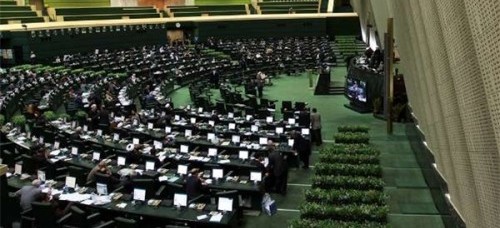Iranian media reports on Sunday that MPs will present a bill with “triple urgency”,requiring the Government to suspend nuclear talks with the 5+1 Powers while the US “continues its threats against Tehran”.
Javad Karimi Qoddousi, a member of Parliament’s National Security Commission, said on Saturday that “the plan will be signed by the legislators and presented to the Parliament’s Presiding Board tomorrow”: “The government will be required to stop the negotiations until the Americans apologize to the Islamic Republic of Iran and end their threats.”
On Wednesday, the Supreme Leader warned Iran’s negotiators, who are seeking a comprehensive agreement by June 30 that they should “observe red lines and tolerate no burden and humiliation”. He asked, “What does negotiation mean under the ghost of a threat?”
He continued, “First of all, you can’t do a damn thing. Secondly…the era of hit-and-run attacks is gone and the Iranian nation will not let go anyone intending to make an aggression” against it.”
The platform for the warning is the Obama Administration’s ritual statement, repeated by Secretary of State John Kerry and Defense Secretary Ashton Carter in recent weeks, that all military options “on the table” if diplomacy fails with Iran.
Ayatollah Khamenei’s message was repeated by Friday Prayer leaders across the country, who responded to the prospect of military action, “If you would like to once again try your luck, the Iranian nation will teach you quite a lesson to cause you never-ending regret.”
See Iran Daily, May 9: Supreme Leader To Nuclear Negotiators — Be Tough with US
Meanwhile, a senior advisor to President Rouhani responded to Thursday’s British General Election with a call for Britain to be more active in influencing the Americans.
Hamid Aboutalebi, Rouhani’s deputy chief of staff for political affairs, said London had taken a back seat in talks, “British policy in the region and on the nuclear issue in recent years has been far from the capacities of that country and has been overshadowed by American policy. This is to Britain’s disadvantage.”
He called on Prime Minister David Cameron, whose Conservative Party won a narrow majority in Parliament, to “increase efforts in the international arena and return to a more active role on the nuclear issue”.
The negotiations resume on Tuesday in Vienna. A nuclear framework was agreed on April 2, and Iran and the 5+1 spent 10 days in New York, culminating last Thursday, beginning the draft of a final text.
Both Foreign Minister Mohammad Javad Zarif and Iran’s lead negotiator, Abbas Araqchi, have said that the drafting is progressing — albeit with hours needed for even a single word — but that there will be “brackets” for political talks to resolve.

